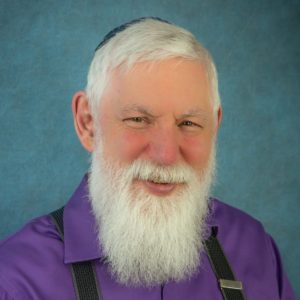
How do we keep our loved ones close after they’ve passed? End-of-life doula Jim Brulé believes stories are one of the best ways to stay connected to loved ones. Collections of stories can become beloved family legacies passed down through generations.
Jim is a spiritual storyteller and teacher, known in the Jewish tradition as a Maggid. He offers legacy-building classes through his business, Transformational Storytelling, in which he teaches people to compile family stories marking life’s milestones. He chooses to coach students to collect their own stories, rather than do it for them, because he believes the family interactions are so memorable. He knows their memories of sitting with family members and listening to the accounts will be as precious as the stories themselves.
“I want them to remember the moment of the exchange between them,” he said.
I asked Jim to tell me more about his legacy services.
Who are your students?
They’re adult children who either are taking care of their parents or know their parents will need some care soon. They know their parents are going to be leaving them. It may be on the horizon or down the road, but people are starting to feel that fear. And they’re thinking ‘I’m going to lose my mother. Lose my father. What can I hang onto?’
One answer is stories. I want them to think about collecting stories before it’s too late.
I offer a three-session class that gives people a structure for collecting their own family stories with the use of a simple digital voice recorder. Sessions last 1-2 hours.
In the first session, we spend some time in community building, so we get to know each other. I give them sample questions to help them gather raw story content. I have a lengthy list of questions they can choose from.
About a week later, we have a session where they practice collecting stories from each other. It’s a chance for them to roleplay initiating the story collection with family members.
Our third session meets 2-3 weeks after that, as a follow up, to answer questions about the process.
For those who complete the class, I offer one-to-one consultations after that for those who want to refine their approach, tackle a new area, or just get general support in moving forward.
What challenges do your students face?
Initiating the legacy project can be a challenge. Usually one side is a little more ready than the other to talk about legacy. I tell them that, in these conversations, they’re talking about life, not death. Death is the elephant in the room, but it’s over there.
How did you get interested in teaching legacy building through stories?
Being a storyteller made me interested in legacy. When my family members have passed, I valued having their recorded stories. There’s a difference between those for whom I have stories in their voice and for those I don’t.
My first career was as a family therapist and I’m Jewish clergy, so much of this work has always been a part of my career.
What is your broader vision for this work?
I don’t want my students to feel like they need me there to collect stories and build a legacy. My hope is that the adult child who collects stories from his or her parents will then start to tell their own stories to their children.
How can people sign up for your class?
People can sign up through my website Loving Transition. Those who want training in becoming a spiritual storyteller should visit my website .
If you would like to hear one of Jim’s own family legacy stories, click here.